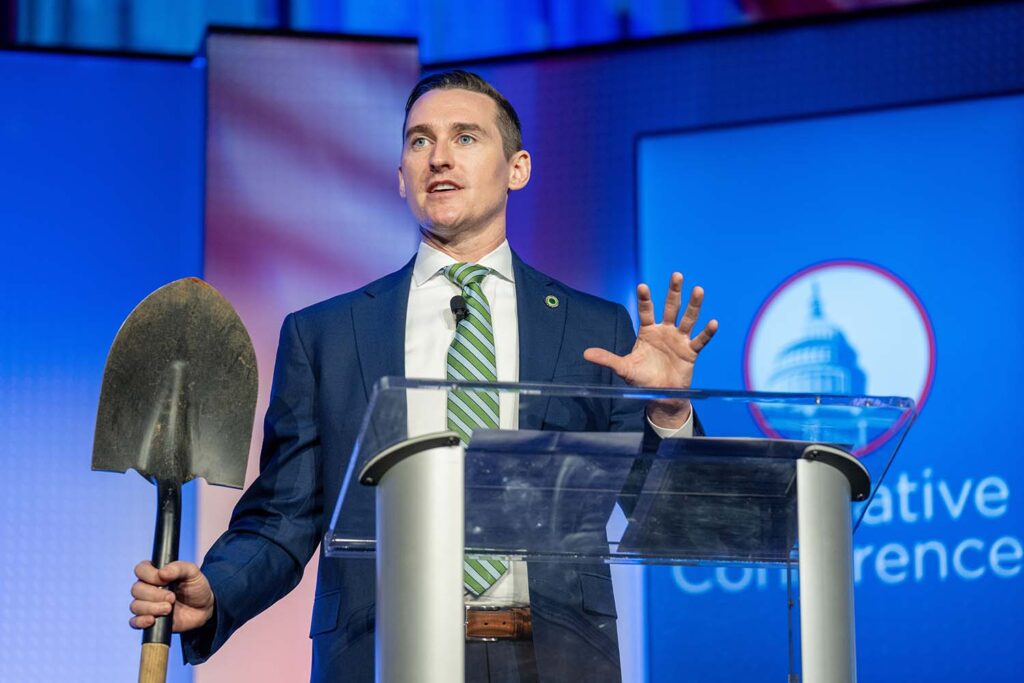
As electric cooperative leaders headed to Capitol Hill as part of NRECA’s annual Legislative Conference, they were equipped with key information about the four most pressing federal policy issues for co-ops: the EPA’s power plant rule, the Energy Department’s distribution transformer rule, USDA’s New ERA funding and utility pole attachments.
In a briefing for attendees, NRECA experts outlined the following messages:
A victory on distribution transformers
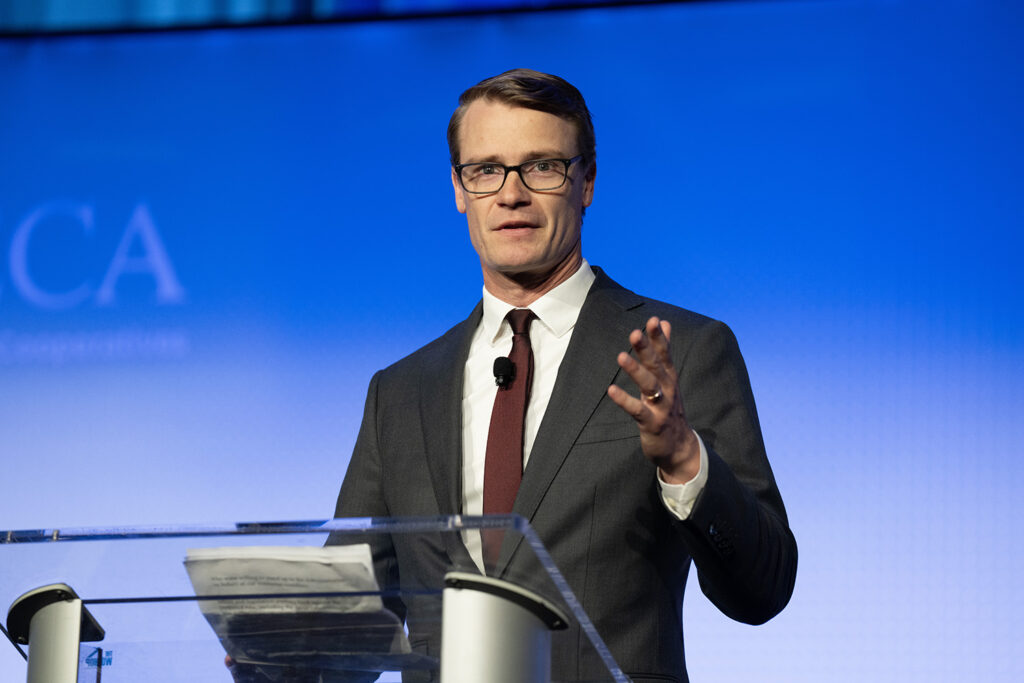
NRECA successfully convinced the Department of Energy to dramatically scale back a proposed rule that would have made it difficult for co-ops to get the distribution transformers that are essential for them to modernize their systems and help communities recover from disasters.
NRECA Legislative Affairs Director Will Mitchell said a key to this successful effort was co-op leaders lobbying their senators and House members on the issue. That led lawmakers from both parties to press the DOE to back off of its original proposal, which would have aggravated supply chain delays by forcing manufacturers to use hard-to-find amorphous steel for transformer cores. The final rule maintains the use of grain-oriented electrical steel and gives manufacturers more time to meet new efficiency standards.
“It doesn’t always take a bill becoming law to achieve victory on Capitol Hill,” Mitchell said as he urged co-op leaders to thank the lawmakers who helped them. “The application of pressure through congressional oversight of a federal agency can be an extremely effective advocacy tool.”
Opposing the EPA’s power plant rule
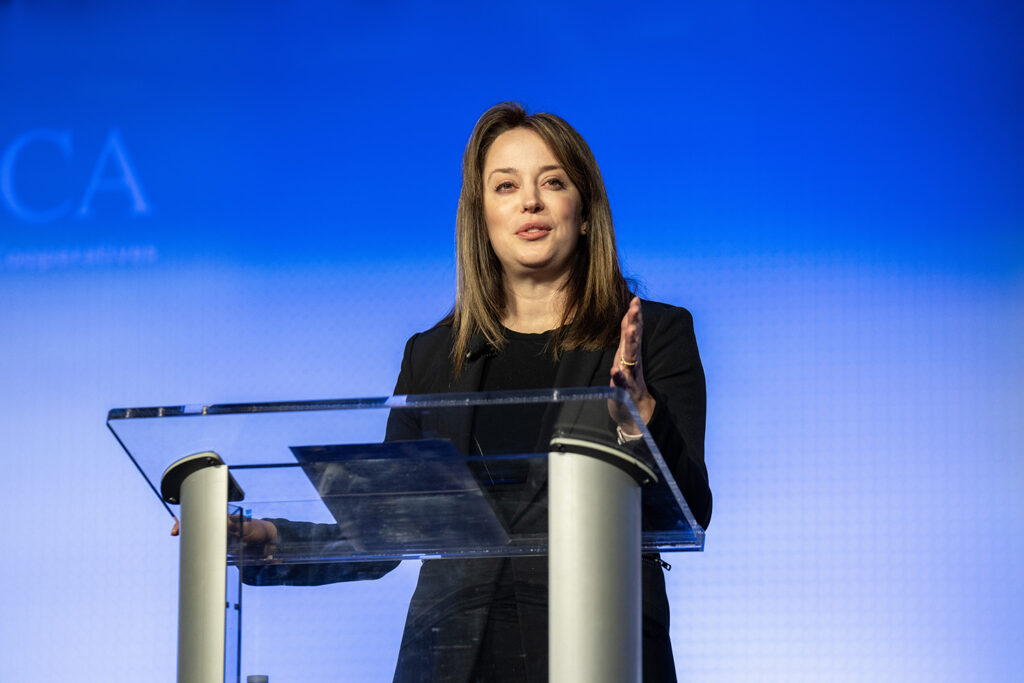
Holding a shovel, Bobby Hamill, NRECA’s senior director of environmental policy, said the Environmental Protection Agency “keeps digging us deeper and deeper into a reliability hole.” The final power plant rule, released on Thursday, violates EPA’s statutory authority under the Clean Air Act as authorized by Congress, NRECA leaders said. “We believe it’s unlawful, unreasonable and unachievable,” said CEO Jim Matheson.
Stacey Dahl, vice president of external affairs at Minnkota Power Cooperative in North Dakota, said “coal remains the heart and the backbone of our system.” The EPA rule could cause blackouts during the region’s frigid winters, she warned. “It will devastate reliability.”
Supporting USDA’s New ERA funding
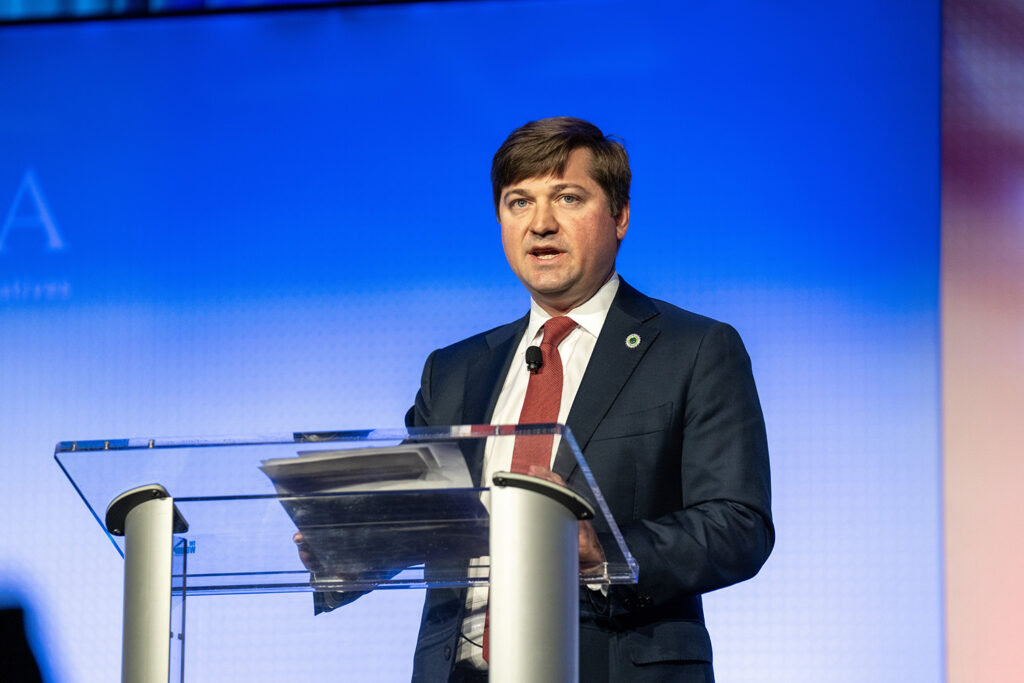
Electric co-ops won a big victory in the 2022 Inflation Reduction Act when Congress created a $9.7 billion voluntary grant and loan program designed specifically for them to purchase or build new clean energy systems. The Empowering Rural America program—known as New ERA—has proven popular with co-ops, which have submitted letters of interest seeking a total of about $46 billion—five times the funding available.
But the program has been targeted by lawmakers attempting to take back some of that money and use it for other things. “It’s up to us to defend the New ERA program,” said NRECA Legislative Affairs Director Jason Cooke. “Members of Congress need to hear from us that the program is worthwhile and should not be touched.”
Fighting unfair pole attachment changes
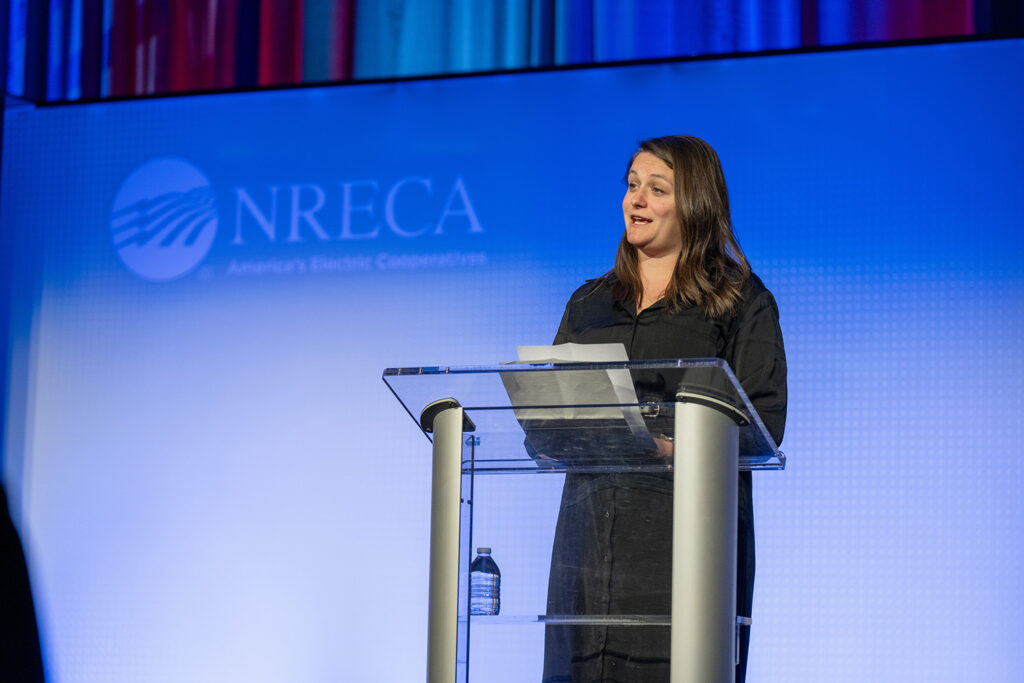
NRECA is battling legislative and regulatory efforts by telecommunications companies to give them access to co-ops’ electric poles to string fiber for broadband. These proposals can jeopardize public safety and the reliability of the co-op’s pole distribution network, said Katie Culleton, NRECA’s legislative director for broadband. It also is seen as an attempt to force not-for-profit co-ops to subsidize the broadband deployment efforts of for-profit internet providers.
“They have a lot of resources, and they try to label us as the bad guy,” said Hunter Robinson, CEO of Central Rural Electric Cooperative in Stillwater, Oklahoma. He said the co-op has discovered telecom companies attaching fiber lines to Central Rural’s poles without even telling the co-op. “Often, they’re just moving through our area, not really serving rural communities. Our members should not have to subsidize this.”
Erin Kelly is a staff writer for NRECA.